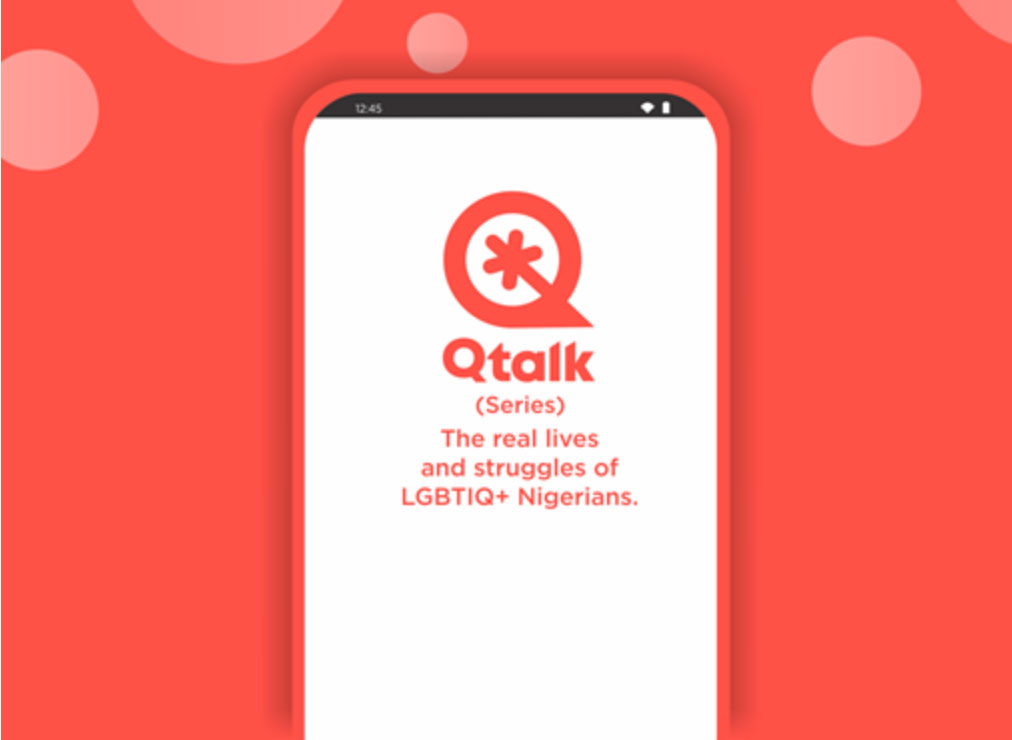LGBTQ+ Nigerians benefit from the support provided by volunteer counselors via the Qtalk app, which is supported by this site and by the St. Paul’s Foundation for International Reconciliation. Download Qtalk from Google Play or the Apple Store.
This series presents their stories. For Qtalk users’ security, they are identified only with pseudonyms.

When Onyedikachi, a 27-year-old gay Nigerian man, reached out for support through the mental health app Qtalk, he was still trying to make sense of the nightmare he had just survived. A simple birthday party, meant to be a quiet, joyful gathering among friends, turned into a scene of chaos, fear and injustice.
“We were laughing, dancing, just enjoying ourselves,” Onyedikachi wrote in his first message to the counselor. “Then suddenly, police barged in. No explanation. No arrest warrant. They just started rounding us up like animals.”
Like many other young men arrested that day, Onyedikachi was accused of being part of a “gay gathering,” a charge frequently used to criminalize queer Nigerians without evidence. The officers beat some of them during the arrest and confiscated phones, demanding passcodes while threatening to publicize private photos.
“It felt like my life ended that night,” he said. “They kept asking questions to make us confess to things that didn’t happen. I was too scared to speak.”
Onyedikachi was detained for over a week in a crowded cell with limited food, poor sanitation and no access to legal representation. He described feelings of isolation, humiliation and helplessness. Although eventually released due to lack of evidence, the psychological impact lingered.
“Even after I got out, I didn’t feel free,” he told the counselor. “I stopped going outside. I couldn’t eat. I kept thinking, what if someone saw me on the news or on social media?”
His initial sessions on Qtalk focused on building trust and offering emotional safety. The counselor used trauma-informed techniques to help him unpack the shock, shame and fear he carried. Together, they explored ways to manage anxiety and regain a sense of control over his body and mind.
One of the recurring themes in their conversations was the stigma and silence surrounding queer life in Nigeria. “I can’t even tell my family what happened. They’ll blame me or disown me,” he confided. “I feel invisible and exposed at the same time.”
Through gentle guidance, the counselor helped him identify small steps toward healing, reconnecting with safe friends, journaling his experiences and practicing mindfulness to stay grounded during flashbacks. Qtalk’s anonymous nature offered him a rare space of privacy, safety and non-judgment in a world that felt increasingly hostile.
In time, Onyedikachi began expressing a renewed desire to live again, not just survive. “I’m not the same person I was before the arrest,” he wrote in a later message. “But I’m starting to feel like maybe that’s okay. Maybe I can still create a life that feels real and mine.”
His journey is ongoing, but through Qtalk, Onyedikachi found not just therapy, he found a lifeline.
COMMENTS